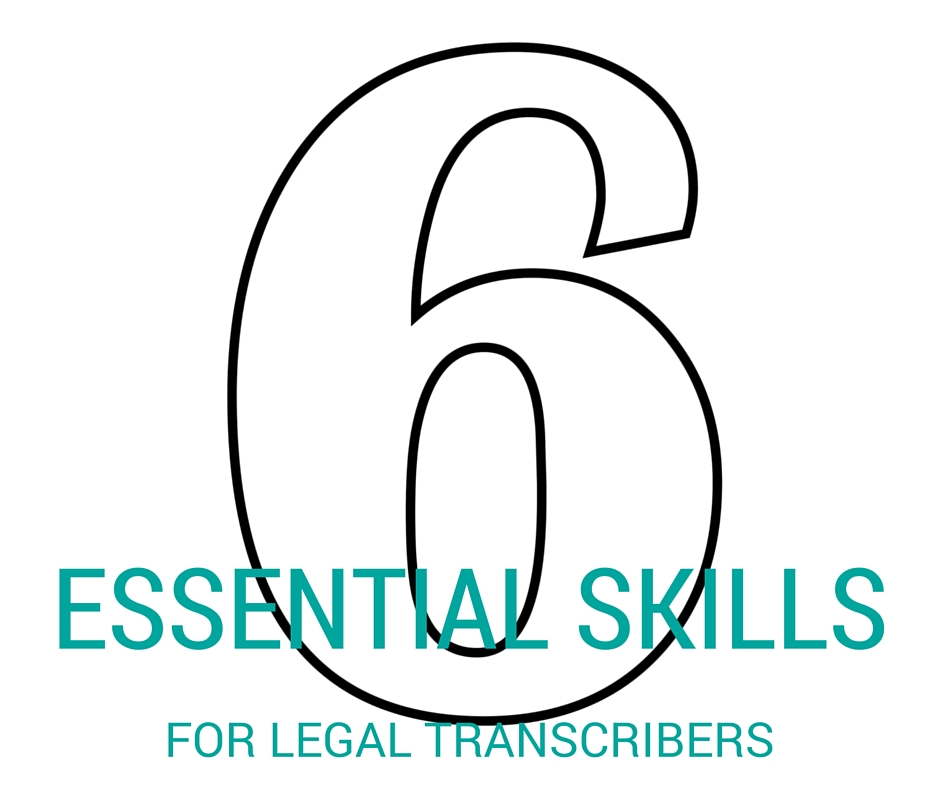
If you are thinking about a career in legal transcription, there are a few essential skills you will need in order to be successful. Each of these can be practiced and learned in order to increase your earnings as a legal transcriber.
Listening
Of course being able to hear is essential for transcribing the spoken word into the written word, but listening is much more of an in-depth skill. You will encounter different accents, different rates of speech, competing sounds, quiet speakers, people speaking over each other and more. Being able to understand context in order to figure out words you can’t hear or are unfamiliar with is imperative.
Research
Using research skills to find spellings, hard to understand words, legal cases and people will be a huge help in transcribing. You will often have to find specific courts, doctors, medical phrases and diagnoses, legal terms, technical terms and more.
Legal Terminology
Of course it should not be surprising that you will need to know legal terminology if you are working as a legal transcriber. From the types of depositions, hearings, trials, to judicial procedure, and legal systems, legal motions, objections and Latin terms. Not only hearing them in audios but knowing the order in which they appear in proceedings in order to title transcripts correctly.
Fast, Accurate Typing
Simply put, the faster you type, the more money you will earn as most legal transcribers are paid on a per page basis. If you can type 20 pages an hour you will earn more than if you can only type 10 pages per hour. In order to increase speed you will need to practice listening and typing at the same time. The less you stop the audio the more you will earn. Of course you need to be typing accurately so that you do not have to fix errors which will increase your working time.
Grammar, Punctuation and Editing
You may think you don’t really need to know grammar or editing as you are just typing what is being spoken. Bad grammar can change the meaning of what you write compared to what was actually said however. For instance, writing immigrate when they said emigrate would change the meaning of the sentence. Editing is not simply reviewing what you have done, it is also the ability to put spoken words into paragraphs for easier reading, and using the correct punctuation to relay what was said. “Let’s eat Grandma” is much different than “Let’s eat, Grandma,” one could prove intent to murder poor Grandma!
Technology and Software Adaptability
Obviously transcribing in today’s world uses computers and software, but many employers and businesses use their own programs for assigning work. Files could need to be played on different audio programs, some may use pedals while others only work with keyboard commands. Being able to learn quickly and adapt will open up more work for you.


